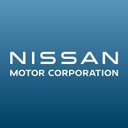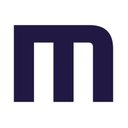Bosch Group
PhD Industry Sabbatical at the Bosch Center for Artificial Intelligence
Job Description
Company Description
At Bosch, we shape the future by inventing high-quality technologies and services that spark enthusiasm and enrich people’s lives. Our promise to our associates is rock-solid: we grow together, we enjoy our work, and we inspire each other. Join in and feel the difference.
The Robert Bosch GmbH is looking forward to your application!
Job Description
The research team at the Bosch Center for Artificial Intelligence (BCAI) provides the opportunity for candidates currently enrolled as PhD students in machine learning, computer vision, or a related field to perform an ‘industry sabbatical’ for 3-12 months. At BCAI we build the foundation to generate real-world impact through cutting-edge research focusing on safe, robust, data-efficient, and explainable AI. We design and implement AI for smart, connected, and autonomous technologies across Bosch business sectors. During the industry sabbatical you will get the chance to develop and implement novel algorithms, and evaluate them on multi-modal open and Bosch datasets. Together with BCAI researchers you will perform original research, theoretical investigations, and aim to publish at top ML conferences. The goal is to define the topic in such a way that it is closely related to your PhD topic.
Possible research areas include:
- Foundation models for perception (e.g., training models using modalities such as vision, radar, and lidar);
- Knowledge distillation from large (foundation) models to hardware-efficient models for embedded application (e.g., using student-teacher techniques or network architecture search based approaches);
- Neural radiance field (NeRF) methods for modalities beyond vision (e.g., radar, lidar);
- Out-of-distribution generalization (e.g., auditing AI models on rare and out-of-distribution data, developing methods for detecting such data, and improving the model ability in handling it);
- Generative data augmentation and validation of downstream DL models (e.g., improving synthesis quality and controllability, efficient sampling of generative models, fast adaption of large-scale generative models to new domains);
- LMMs (Large multimodal models) beyond vision and text, including other modalities such as time series sensor modalities (e.g. incorporating additional modalities and improve on model generalizability, synthetic multimodal data generation);
- Large language models (e.g., identifying and counteracting hallucinations, NLP applications on Bosch data, combining text and other sensor modalities, conversational AI);
- Neuro-symbolic AI (e.g., learning and completing knowledge graphs, combinations of NLP and knowledge graphs, answer set programming);
- Bayesian machine learning (e.g., probabilistic inference, causal inference, graphical models, etc.);
- Behavior learning (e.g., predictions of dynamic agents, driver models, long-tailed learning challenges);
- Robot learning (e.g., perception for grasping and manipulation, semantically-informed robot decision making);
- Reinforcement learning (e.g., meta reinforcement learning, combine offline and online methods);
Please name 1 to 3 topics of the above list or explicitly state your field of interest in your application.
Qualifications
Competitive candidates will have a track record of research excellence, a strong recommendation from a research supervisor, excellent programming skills, and the ability to work in a team environment.
Minimum qualifications:
- Currently enrolled in a PhD program in computer science or a related technical field
- Master degree in computer science, mathematics, physics or related fields
- Research experience in the fields of machine learning, deep learning, natural language understanding, robotics or computer vision from previous internships, work, personal projects, and/or lab work
- Good publication record, at least one publication at tier-1 conferences in the field of machine learning, robotics, natural language processing or computer vision (e.g. NeurIPS, ICML, ACL, CVPR, ICLR, etc)
- Proven programming skills, in particular Python
- Strong team player and very good English skills (written and spoken)
Additional Information
Please submit all relevant documents (incl. curriculum vitae, certificates, record of publications)
You can find more information on the Bosch Center for Artificial Intelligence here: https://www.bosch-ai.com/
Need support during your application?
Kevin Heiner (Human Resources)
+49 711 811 12223



